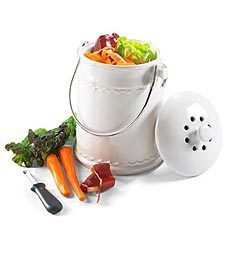特別推薦:2011兩會雙語直通車
此次全國“兩會”上,部分政協(xié)委員建議應(yīng)盡快立法管理餐廚垃圾,在制度上使其“變廢為寶”。民建中央委員、海南省主委施耀忠介紹,根據(jù)清華大學的統(tǒng)計,我國城市餐廚垃圾年產(chǎn)生量不低于6000萬噸,這些垃圾處理不到位,會對市民的健康產(chǎn)生影響。據(jù)介紹,餐廚垃圾如果經(jīng)過高溫無害化處理就可以變廢為寶、變害為利。由餐廚垃圾加工成的蛋白質(zhì)飼料可喂養(yǎng)家禽、牲畜,提煉出的泔水油脂可作為肥皂、油漆的輔助原料,提煉后的雜物可加工成農(nóng)用肥料。
民進中央常委、寧夏自治區(qū)政府副主席姚愛興就建議,應(yīng)制定法律,對餐廚垃圾集中收集,專業(yè)運輸,集中專業(yè)處理。姚愛興委員建議,無證收集者被取締后,應(yīng)扶持經(jīng)環(huán)保部門認可的正規(guī)餐廚垃圾處置企業(yè),同時政府應(yīng)對其收集、處置及排放全程監(jiān)督。

 |
|
Rotten potatoes and unwanted chicken wings represent a novel form of energy, otherwise they could risk food safety.
|
Rotten potatoes and unwanted chicken wings represent a novel form of energy, otherwise they could risk food safety, said two Chinese political advisors who called for legislation against improper handling of kitchen waste.
"The legislature should make laws to guarantee that kitchen waste is properly treated and recycled into assets," said Yao Aixing, a member of the National Committee of the Chinese People's Political Consultative Conference (CPPCC), the top political advisory body.
Yao's proposal came at a time when most Chinese people, who have more disposable income, seem to be less thrifty when consuming food.
Yao serves as vice governor in charge of food safety affairs of the Ningxia Hui Autonomous Region. He warned that the growing amount of catering leftovers would put food safety and the natural environment under threat.
Each year, kitchen waste was "processed" into two to three million tonnes of swill-cooked dirty oil, which sneaked back to dining tables through an underground muck-money network, Yao cited official media reports as saying.
"This poses a serious danger to the food safety of citizens," he said.
The kitchen leftovers, thought to be a good source of digestible energy and high-quality proteins, might end up as feed for livestock such as pigs and chickens, as a supplement to their diet, the adviser said.
However, food safety experts said kitchen leftovers were a source of infection for animals, which, in extreme cases, could result in contamination of meat or eggs and cause illness among people who consume livestock products.
Growing kitchen waste also takes a toll on the environment, which falls victim to the leftovers that are kept away from people's dining tables and livestock feed, said Yao.
Burnt kitchen waste together with other household garbage in rubbish incineration power plants would greatly increase the emission of dioxins, a toxic gas, Yao said in his proposal.
Shi Yaozhong, another member of the CPPCC National Committee, submitted a similar proposal in which he also raised questions about energy waste as a result of the improper treatment of kitchen waste.
Chinese cities churn out at least 60 million tonnes of kitchen waste each year, representing the calorie equivalent of grain harvested from 12 million mu (800,000 hectares) of farmland, said Shi, citing data from the School of Environment in Tsinghua University.
In 2009, at least one hundred billion yuan (15.2 billion U.S. dollars) was wasted in the form of leftovers from China's catering sector, he said.
After receiving high-temperature treatment, kitchen waste can be processed into safe feed for livestock while the swill fat refined from the waste can be used to supplement raw material for producing soaps and paint and the leftovers can serve as fertilizer, Yao said in his proposal.
Shi and Yao called for the national legislature to roll out regulations to demand restaurants hand in their leftovers once a day to collectors from professional kitchen waste treatment companies.
After the case of swill-cooked dirty oil was revealed, four ministries, including the top economic planning body, the Ministry of Housing and Urban-Rural Development and the Ministry of Environmental Protection jointly launched a trial program last May for proper treatment of kitchen waste.
The ministries' move was followed by the State Council, China's Cabinet, which issued a decree for enhancing the regulation of swill-cooked oil and kitchen waste in July 2010.
Nearly 20 Chinese cities, including Beijing and Shanghai, have rules concerning kitchen waste treatment but enforcement has been weak due to the absence of a national law, said Shi.
相關(guān)閱讀
委員建議建立失地農(nóng)民保障體系
公車改革:省部級以下不配專車
中國將在2016年前發(fā)射空間實驗室
(Xinhua)

(中國日報網(wǎng)英語點津 Helen 編輯)